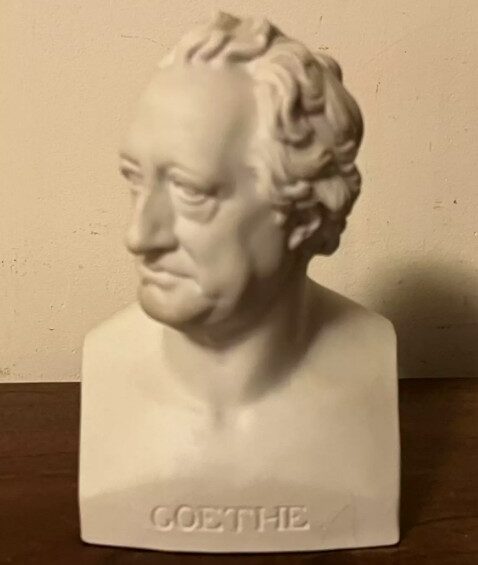
Johann Wolfgang von Goethe as Essayist

Johann Wolfgang von Goethe was one of the most universal minds in European culture. Over the course of his long life, he wrote an enormous number of essays covering almost every field of human knowledge: in addition to botany, physics, and mineralogy, he dealt with medicine, pedagogy, physiognomy, economics, and the science of public administration. His essays make up a large part of his opera omnia, which spans over 140 volumes — a testament to his boundless intellectual curiosity and his rare ability to combine empirical observation, philosophical reflection, and aesthetic sensitivity.
As a formidable essayist, he investigated nearly every aspect of life and society in his time, with critical insight and extraordinary creativity, producing a vast body of monographs and treatises that go far beyond science, art, and philosophy.
His interests touched on fields that today are considered highly specialized, but which Goethe approached with a systematic and holistic vision. An emblematic example is his contribution to physiognomy in Von der Physiognomik. Gegen die Physiognomen (1778), where, criticizing deterministic readings of the human skull and face, he proposed a more dynamic view of the relationship between outward appearance and inner being:
“One cannot read a man’s character from his forehead or jaw: his spirit is inscribed in his movements, his posture, his silences.”
In the economic and social domain, Goethe developed profound reflections on public finance and state administration, which he condensed into political writings and letters from Weimar, where he served as a minister for decades. For example, in Reglement über die Bergwerke (Regulation on Mines, 1783), he demonstrates a vision already modern regarding the relationship between natural resources, labor, and environmental protection.
His attention to pedagogy and education emerges in the Letters on the Aesthetics of Education and scattered observations in Maximen und Reflexionen (Maxims and Reflections), where he wrote:
“True education does not transmit information, it teaches how to see.”
Goethe also explored medicine and psychophysiology, engaging in extensive correspondence with doctors and scientists of his time, formulating ideas about the connection between bodily humors and emotional states. In the Fragments on Nature (Fragmente über die Natur), attributed to him but published anonymously in 1782, he expresses one of his most powerful insights:
“Nature has no system: it has life. It is life in an infinite web of forms, each of which is a whole, and yet part of the whole.”
Ultimately, Goethe’s opera omnia — now comprising over 140 volumes of writings, letters, notes, and treatises — is not just a monument of German culture, but a true encyclopedia of human experience. His encyclopedic curiosity and non-sectorial thinking anticipate the contemporary transdisciplinary spirit: in him coexisted the poet, the politician, the naturalist, the epistemologist, the pedagogue, and the reformer. A universal mind in constant dialogue with the complexity of reality.
Goethe Haus Palermo
A site about the extraordinary figure of Goethe.
For any comments on this page and to report any errors, please send an email to info@goethehaus.cloud.
Subscribe to our Newsletter!
